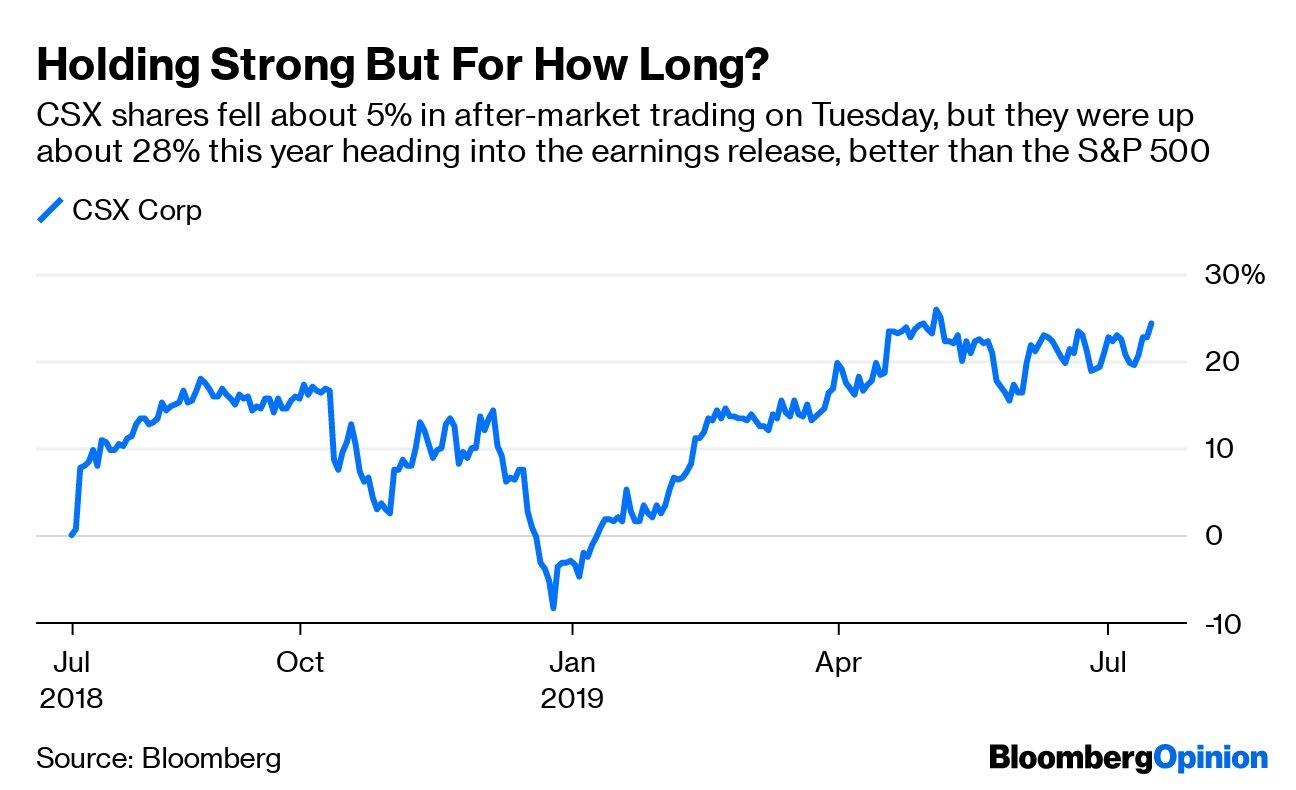Jul 16, 2019
A railroad’s slashed outlook sends a foreboding message
, Bloomberg News
CP Rail reports record revenue in Q2
Add CSX Corp.’s (CSX.O) earnings to the list of ominous signs for the economy. The East Coast railroad reported second-quarter results late Tuesday that missed analysts’ estimates. CSX said it now expects revenue to decline as much as 2 per cent in 2019, compared with an earlier outlook for a low single-digit gain.
At the beginning of the year, when recession worries were at a fever pitch, CSX CEO Jim Foote brushed off the consternation as an overreaction because “when you get a real recession, the volumes drop off really fast – that’s not happening.” On Tuesday, he acknowledged the "slow drift" down on demand but argued the economy wasn't facing a "gloom and doom" scenario. It depends on your definition of doom, I suppose, but there was more gloom than sunshine in CSX's earnings report.
Total volume slumped 4 per cent in the second quarter, led by a 10% slide in intermodal traffic (or goods that are moved via multiple forms of transportation, such as trains and trucks). Some of that is a reflection of CSX’s decision to consolidate its network by exiting some more regional and shorter-haul routes. But it’s also a sign of weaker economic conditions and a stockpiling of inventory as companies raced to get ahead of escalated tariffs in the U.S.-China trade war.
CSX says the guidance cut is meant to reflect a cautious approach given the current economic uncertainty, and there’s the prospect of increasing that outlook if conditions improve later this year. But if the company really believed a turnaround was nigh, I highly doubt it would have cut its revenue guidance so dramatically. The gloomy outlook contrasts with a more positive view expressed earlier Tuesday by management at trucking company J.B. Hunt Transport Services Inc.; they see intermodal cargo volume improving in the back half of the year. Lower trucking rates could be driving more customers to transport their goods via the roads. Or perhaps J.B. Hunt is too optimistic.
The Cass Information Systems’ Freight Index indicates a 5.3% drop in shipments in June, the seventh straight month of declines. The data is based on $28 billion in freight transactions processed by Cass annually. While acknowledging the tough comparisons relative to an extremely robust 2018, Cass said the ongoing string of declines signals we’ve moved past “’warning of a potential slowdown’ to ‘signaling an economic contraction.’”
CSX shares plunged as much as 5% after its weak earnings report. Shares of railroad companies have been buoyed by an industry-wide push to cut costs and improve efficiency that’s helped boost profit even as volumes have slumped. Indeed, CSX on Tuesday reported its operating ratio (a measure of profitability in which a lower number is better) improved to 57.4% in the second quarter, compared with 58.6% a year earlier. But the railroads can only outrun economic weakness for so long. Tuesday’s disappointment is another reminder that investors may not be properly prepared for the slowdown that’s already underway.


